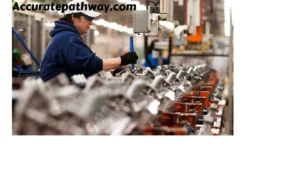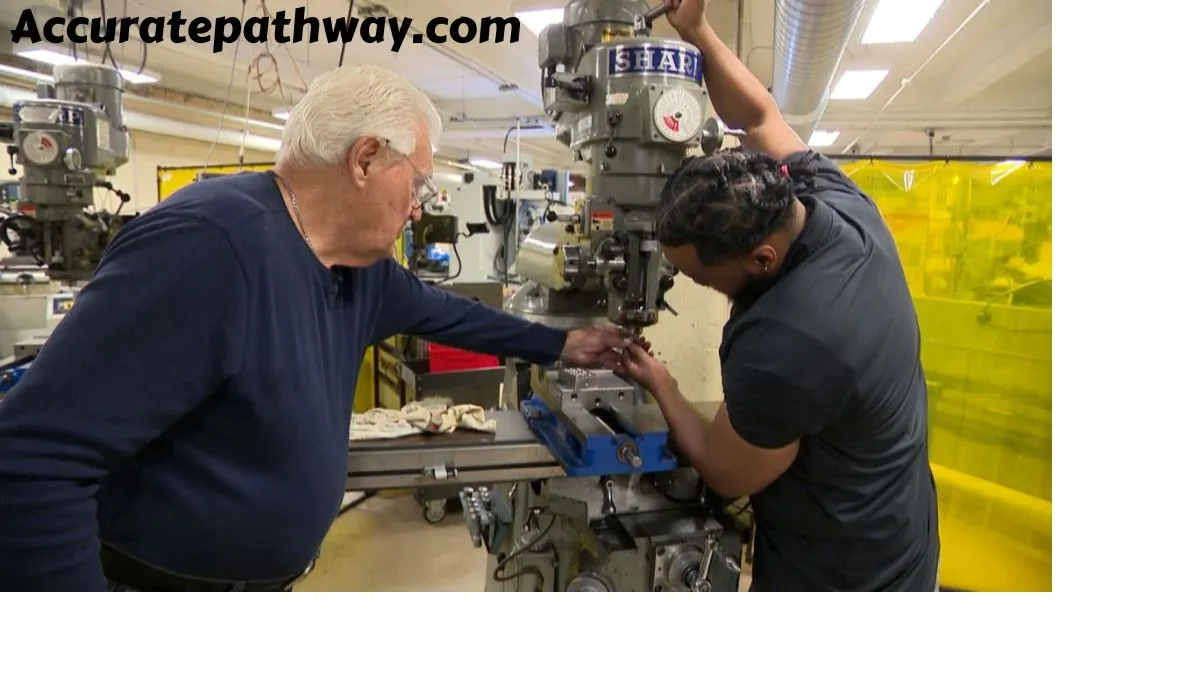In the bustling industrial landscape of the United States, factory worker jobs form a cornerstone of the economy. These roles encompass a diverse range of tasks, from assembly line production to specialized manufacturing processes, playing a vital role in the production of goods that drive both domestic consumption and international trade. Let’s delve into what defines factory worker jobs in the USA today, exploring the opportunities they present and the challenges they face.
Diverse Roles, Specialized Skills of Factory Workers
Factory worker jobs in the USA are as varied as the products they help create. At the heart of these roles lies the assembly line worker, tasked with efficiently piecing together components to build products ranging from automobiles to electronics. These positions often require manual dexterity, attention to detail, and the ability to work in a fast-paced environment to meet production quotas.
Beyond assembly, factory workers may specialize in machine operation, ensuring that industrial equipment runs smoothly and meets stringent quality standards. This requires technical acumen and sometimes certification in operating specific machinery. In more advanced manufacturing settings, roles may involve programming or monitoring computer-controlled machinery, highlighting the shift towards automation and digitalization in modern factories.
Opportunities for Advancement
Factory worker jobs are not solely entry-level positions. Many offer opportunities for advancement through on-the-job training and experience. Workers who demonstrate reliability, initiative, and a willingness to learn may progress to team leader or supervisor roles, overseeing production lines and coordinating activities to optimize efficiency.
Moreover, as technology continues to transform manufacturing processes, there is a growing demand for workers with technical skills in robotics, programming, and data analysis. These specialized roles not only offer higher earning potential but also contribute to the innovation and competitiveness of American manufacturing on a global scale.
Challenges Facing Factory Workers
While factory jobs offer stability and opportunities for career growth, they are not without challenges. The repetitive nature of assembly line work can be physically demanding, requiring workers to maintain focus and precision over extended shifts. Occupational hazards also exist, necessitating adherence to strict safety protocols and regulations to minimize risks associated with operating heavy machinery or handling hazardous materials.
Furthermore, the evolving landscape of manufacturing, influenced by factors such as globalization and technological advancement, has led to shifts in job availability and skill requirements. Workers may need to adapt to changing job roles or undergo retraining to remain competitive in the job market..
Salary Range for Factory Workers in the USA
Factory worker salaries in the USA can vary widely depending on factors such as location, industry, specific job duties, experience level, and the size of the employer. Generally, factory workers’ salaries fall within a range that reflects these variables. Here’s an overview of the typical salary ranges:
Entry-Level Positions:
- Hourly Wage: Entry-level factory workers often start at minimum wage or slightly above, which can vary by state but typically ranges from $7.25 to $15 per hour.
- Annual Salary: On an annual basis, this translates to approximately $15,000 to $31,200 for full-time work (assuming 40 hours per week).
Experienced Positions:
- Hourly Wage: As factory workers gain experience and expertise, their hourly wage tends to increase. Experienced workers can earn anywhere from $15 to $25 per hour, depending on the industry and specific skills required.
- Annual Salary: Annually, this equates to roughly $31,200 to $52,000 based on full-time employment.
Specialized or Technical Roles:
- Hourly Wage: Roles that require specialized skills or technical knowledge, such as machine operators, CNC machinists, or maintenance technicians, often command higher hourly rates. These can range from $18 to $30 per hour or more.
- Annual Salary: This translates to approximately $37,440 to $62,400 annually.
Location Factors:
- Salaries can vary significantly by region. For instance, factory workers in urban areas or states with higher costs of living may earn higher wages compared to those in rural areas or states with lower living expenses.
Industry Variations:
- Different industries within manufacturing may offer varying compensation levels. For example, workers in aerospace or automotive manufacturing may earn higher wages compared to those in textiles or food processing
Benefits of Factory Workers to USA

Factory workers play a crucial role in the economic and social fabric of the United States, contributing in various ways that benefit both the country as a whole and local communities. Here are several key benefits that factory workers bring to the USA:
Economic Contribution:
- Job Creation: Factory workers contribute to job creation and employment stability across the country. Manufacturing industries employ millions of Americans directly and support countless other jobs indirectly through supply chains and local services.
- GDP Growth: Manufacturing is a significant contributor to the Gross Domestic Product (GDP) of the United States. The sector’s output fuels economic growth and supports the overall health of the economy.
Innovation and Technological Advancement:
- Factory workers often play a role in driving innovation within their industries. Their firsthand knowledge of production processes and materials can lead to improvements in efficiency, quality, and product innovation.
- As manufacturing embraces automation and digital technologies, factory workers contribute to the adoption and implementation of advanced manufacturing techniques that enhance competitiveness on a global scale.
Support for Local Communities:
- Manufacturing jobs, including factory worker positions, provide stable employment opportunities in many communities, particularly in rural and urban areas where these industries are concentrated. This stable employment helps support local economies and improves living standards for families.
- The presence of manufacturing facilities often attracts ancillary businesses and services, further boosting local economies through increased demand for goods and services.
National Security and Resilience:
- A robust manufacturing sector, supported by skilled factory workers, enhances national security by reducing dependency on foreign sources for critical goods and materials. This capability becomes crucial during times of global disruption or supply chain challenges.
- Manufacturing capabilities also contribute to resilience during emergencies or national crises, ensuring a reliable supply of essential products such as medical equipment, defense materials, and infrastructure components.
Skills Development and Training:
- Factory worker roles provide opportunities for skills development and career advancement. Many manufacturing companies invest in training programs that equip workers with technical skills, thereby enhancing their employability and earning potential.
- These skills are transferable and valuable beyond the manufacturing sector, contributing to a skilled workforce that supports broader economic diversification and growth.
Global Competitiveness:
- The expertise and productivity of American factory workers contribute to the global competitiveness of U.S. manufactured goods. High standards of quality and efficiency help maintain and expand market share in global markets, supporting export growth and balancing trade deficits.
Conclusion
Factory worker jobs in the USA remain a cornerstone of the economy, offering a pathway to stable employment and career advancement for millions. As the manufacturing sector continues to evolve, driven by technological innovation and global competition, the demand for skilled factory workers with both traditional and emerging skills remains strong.
For those considering a career in manufacturing, embracing opportunities for skills development and staying abreast of industry trends will be crucial to navigating the dynamic landscape of factory worker jobs in the USA.
In essence, while challenges persist, the resilience and adaptability of American factory workers continue to drive the sector forward, ensuring its pivotal role in the nation’s economic fabric for years to come.
SEE MORE;

1 thought on “Factory Worker Jobs in USA”